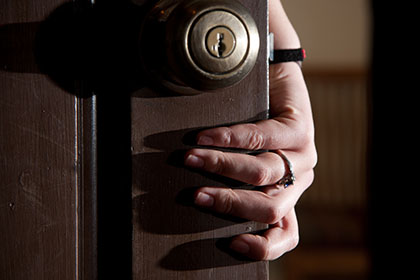Raise your hand if you’ve had a bad first date? I’m guessing that most of you have. Well, my friends, so have I—many, in fact. And it is through these trials and tribulations that I have come to realize a good date is all in the preparation. You don’t have leave the fate of your date up to, well, fate. There is a lot that you can do to ensure a more successful date before departing on your romantic rendezvous. Let me tell you how with a few of my misadventures in the dating world.
Note: These lessons are from my experience and thus lean towards the heterosexual point of view, but I hope these tips can apply to all kinds of relationships!
1) Be clear that it’s a date.
You know how, in movies or TV, someone seems to always have the tenacity to ask “Wait, are you asking me out on a date?” with a sly smile and a knowing look? Well, I’d never have the guts to ask that and, if I did, it would probably be a shy awkwardly stuttered sentence like: “Date. ME?” If you’re like me, then it can be hard to be sure you’re either going on a date or (often in my case) clarifying that you are in fact asking someone on a date. For the latter, I find asking someone to an obvious date-like activity, say dinner and movie for two, is helpful. However, that doesn’t always work. I bring you exhibit A:
I had a crush on a guy who was kind of a friend, or at least had dated one of my friends (always a good place to start). We had started hanging out and I wanted to progress things to the next level, so I thought, Hey, you know what’s a great idea? Asking him to a movie via text, that’s what. This was my first mistake. A text is never a good way to transition a friendship to romance, let alone obviously ask someone out without the gratuitous use of winky faces. So, when I showed up for this so-called “date,” guess who was surprised to see only me standing at the door and tried to invite his roommate along? I’ll give you a hint: it wasn’t me. If you would like to avoid this fate, I suggest you make your intentions as clear as you can.
2) You don’t have to lay it all out there, but don’t be completely opaque.
As you prepare for your date, you might find yourself worrying over what you’ll talk about. What if you say something awkward? Or you don’t have anything to say? Or, in your fear of silence, you talk too much? This last one is my biggest downfall and why I advocate keeping the first date light and fun: no midnight confessions or blood oaths. Now, I am not saying for you to hide your true self away until you’re sure he/she likes you and then reveal your deep-seated love of unicorns. All I mean is you don’t have to tell all on the first date. Take it from someone who invited a guy on a first date to a poetry slam and thought it would be a good idea to sign up. I had just met this guy, and here I was standing in front of an audience performing a poem about my parent’s relationship while he squirmed in his seat. Talk about vulnerability. You do not need to do this. In fact, just don’t.
Though, you do need to be somewhat vulnerable. You have to share something about yourself, but more importantly you have to reveal your emotions. The only way the person is going to know that you like him/her is by showing it. Now, I am horrible at flirting, so I usually go with the more direct “I had a good time. Let’s do this again” approach. But even that can be confusing if interpreted as a line. So make sure to send a flirty text later or, better yet, set up the next date. Nothing says “I like you” like I want to see you again and maybe this time I’ll tell you about my unicorn obsession.
3) It doesn’t have to be romantic.
The first date is exactly what it is: a first date. Whether you’re looking for your soul mate or just someone to date for a while, the first date is like a test drive. And since it’s just a test drive, you don’t need to go full throttle (unless you really want to: #punalwaysintended). What I mean is it’s perfectly fine if you do not touch on the first date (I would consider that normal for meeting a stranger).
In the past, I had this ideal that the best dates were the sweep-you-off-your-feet romantic ones and every time I went on a date that didn’t reach those standards, it felt like a failure. And yet many of my most romantic dates ended up being assholes later or just looking for sex. One guy invited me to the top of his roof and as we were sitting there overlooking the sunset, he swept my hair out of my face and asked me what I wanted most in the world right now. I kissed him because that seemed like the most romantic gesture. Guess who never heard back from him? It was a great moment, but it taught me to re-evaluate my standards. These days, I don’t go into the first date expecting to find sexual tension right away; I save that for later. Right now, I just want to know if we can hold a conversation without it being painful.
4) Check your expectations
And this brings me to my final pre-date prep tip: remind yourself that you don’t have to decide right away. As I said, this is a first date, not a life-time commitment, so don’t treat it as such. If you are unsure about how you feel at the end of the date, that’s fine. You can go on another date and continue to test the waters. On the other side, if you find yourself falling for someone on the first date, you should also check yourself.
I have been on both sides of this spectrum. On one hand, I stopped seeing a guy because I thought I didn’t have time to date anyone I wasn’t sure about and in retrospect realized he could have been a great match for me. And then I have gotten my heart broken over a single date. It didn’t help that I was already obsessed with him before I even went on the date, but I could have saved myself some pain if I had followed my own advice.
This is why I say I don’t believe in love at first sight, but I do believe in heartbreak at first kiss. Be careful with your hearts, my friends. And try to remember: it’s just a first date. So have fun!

Photo by Sara Slattery

